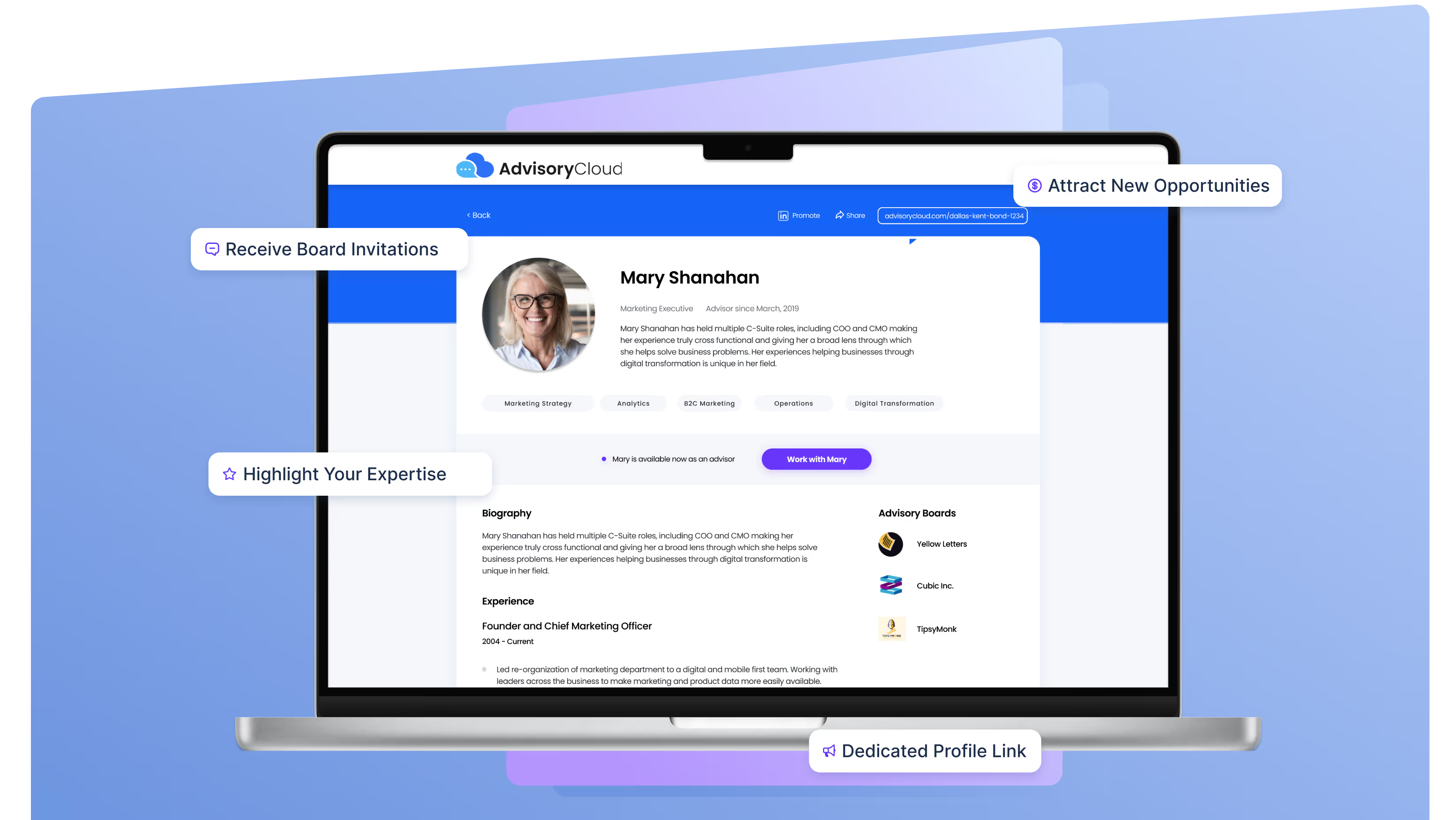March 6, 2023

How networking with your executive peers will help you grow.
In today’s business environment, the importance of networking and building strong connections with executive peers cannot be overstated. Having a strong professional network is essential for your own career growth, as it helps to broaden your knowledge, open up business opportunities, and introduce you to leaders in your field. Whether you’re already a senior executive or just starting out in the business world, it pays to build relationships with key individuals in your industry. Here, we’ll take a look at why connecting with executive peers is important, the benefits you can gain from it, and tips and strategies for making the most of these valuable connections.
Why Connecting with Executive Peers is Important
When it comes to networking and forming relationships in a professional environment, the key factor to consider is the power dynamic between those involved. Executives, generally speaking, have more access to resources, opportunities, and decision-making power than those who are lower down on the corporate ladder. Therefore, developing connections with executives can lead to invaluable insights and experience that can be used to your advantage. Additionally, having a network of executive peers can be a good way to stay up to date on industry trends and gather feedback for business ideas or projects. Executives can also act as mentors or sponsors for those just starting out in their careers.
Connecting with executive peers can also be beneficial for those who are already established in their careers. Having a network of executive peers can help to open up new opportunities for career advancement, as well as provide access to resources and contacts that can be used to further your career. Additionally, having a network of executive peers can help to provide valuable feedback and advice on how to navigate the corporate landscape and stay ahead of the competition.
Benefits of Networking with Executive Peers
Networking with executive peers can provide many advantages. By extending your professional network with executives, you can gain access to new insights and ideas that can help you grow both professionally and personally. It also provides the opportunity to collaborate with executives who may have experience and knowledge that could be beneficial to your career path. Additionally, connecting with influential executives may help you find professional mentors or sponsors who can offer guidance and advice. As well, having prominent contacts within your industry can open up new opportunities and help you stay informed of any changes in the corporate landscape that might affect your profession.
Tips for Building Effective Network Relationships
Building relationships with executives requires time and effort, but there are many ways to make these connections more meaningful. Be sure to always make a positive impression during your initial contact – ensure that you are professional and engaging, and use open-ended questions to get conversations flowing. Be sure to also follow up after conversations – this gives a good indication that you’re interested in staying in touch and deepening the relationship. It’s also important to make sure that your network knows that you’re available should they ever need your help. By taking the initiative and demonstrating the value you could bring to their lives, you create an opportunity to establish a beneficial friendship.
Strategies for Growing Your Network
When looking to expand your executive network, it’s important to take a proactive approach. Consider attending business events, volunteering for industry-related tasks, or joining professional groups related to your field. Additionally, participating in podcasts or webinars is another great way to get noticed by executives in your community. If you know someone who is already connected with executives in your line of work, reaching out to them for an introduction may be helpful. Of course, traditional methods such as attending industry events, conferences, or seminars may still prove effective.
How to Find Executive Peers to Connect With
Developing relationships with senior executives will require you to put yourself out there – it takes dedication and proactivity to meet the right people. Start by introducing yourself at gatherings related to your field. Professionals are often open to meeting like-minded people if they feel that you could bring value to them – this could be through offering advice, insights, or resources. Social media networks such as LinkedIn and Twitter also provide excellent platforms for connecting with executives. Take advantage of public profiles and reach out to influencers in interesting ways that will make them take notice.
The Benefits of Investing in Executive Networking
The gains from investing time and energy into nurturing relationships with executive peers are numerous. For starters, you can move up the corporate ladder faster by having mentors or sponsors who will help you take the next step in your career. Additionally, these relationships can provide insight into emerging trends or changes within the corporate landscape. Your peers may also be able to help open up job opportunities outside of your company that may offer more growth potential. Ultimately, having executive contacts will give you a greater level of visibility in the business world.
How to Utilize Your Executive Network to Reach Goals
Once you’ve established strong executive connections, make sure that you’re using them regularly. Whether it’s asking questions or seeking advice on career strategies, be sure to stay connected with your network members on a semi-regular basis. Additionally, by providing value back to your network – such as sharing good news or leads on job openings – it can help build long-term relationships that can open up other opportunities within the professional sphere.
Social Events and Opportunities for Executive Networking
It’s important to keep in mind that executives are still humans and are likely just as interested in social activities outside of work as everyone else. There are many opportunities available such as charity functions or industry dinners where senior executives can mingle with more junior professionals and grow professional connections outside of the office setting. If there’s an event that appeals to you and execs from your field will be in attendance, use it as an opportunity to introduce yourself and start building relationships.
Tips for Utilizing Online Platforms for Executive Networking
Maintaining an online presence shouldn’t just be restricted to social media – there are many platforms where a knowledgeable professional profile can help connect with other executives and industry influencers. In particular, LinkedIn is one of the best ways to connect with senior-level executives from all industries worldwide. Don’t just rely on having a presence – actively participate in conversations on message boards or groups related to your field, and comment on discussions where relevant.
Best Practices for Growing Your Professional Network Through Connections With Executives
When aiming to build relationships with executives, there are some best practices that you should keep in mind. Demonstrate your worth by understanding industry trends and being well informed. Send concise messages without seeming too eager or desperate. Additionally, do research when meeting execs for the first time so that you know what topics may be relevant or interesting for them – this will help put you in the best possible light when engaging with them.
The Impact of Positive Outcomes From Leveraging Your Professional Network
Having a positive network of executive contacts can open up long-term doors of opportunity – from initiating collaborations with experienced professionals through to building credibility through recommendations. As well as personal growth opportunities such as career progression or receiving mentorship from experienced professionals, having a strong professional network can also help build relationships with potential clients or customers – something which could be a crucial part of growing or developing any business or venture.
Strategies for Strengthening Professional Relationships with Executives
In order to maintain strong relationships with executives, it’s important to stay engaged with them beyond just initial contact. Make sure that your network knows that you care about their content and take any opportunity to attend events where they are speaking – this displays genuine interest which will further deepen the relationship.
Additionally, look for ways to add value to their lives – whether that is through offering advice on how they may tackle certain challenges or providing leads on potential new collaborations or partnerships. Ultimately, being available when required and taking initiative will help leave a lasting impression.
Common Challenges When Building Connections With Executives
Networking with anyone can be challenging because people often place a high value on their time – but this is especially true when it comes to senior-level executives who are already well-connected. As such, it can be disheartening when attempts at growing contacts don’t work out as planned – however, this should not deter you from attempting again as successes can be achieved if done correctly.
When putting yourself out there, prioritize quality over quantity when trying to win over new contacts – send personal messages instead of generic form letters. Additionally, focus on building relationships through providing value rather than ‘selling yourself’ – this will give you a higher chance of forming lasting partnerships.
The Future of Executive Networking
Networking is an essential part of career growth within any field, but especially within the business world. As technology continues to evolve, networking opportunities may become even more prevalent. Through leveraging digital platforms such as LinkedIn and attending virtual events, connecting with global executive contacts is becoming easier than ever before.
As such, execs can now virtually meet anyone from anywhere on the planet – making it possible to source the best resources, collaborate on new ideas, and create innovative solutions within a short period of time.
Overall, investing time into developing connections with executive peers can have long-lasting benefits and leave a lasting impression – both for yourself as well as for your peers.
See what boards you match with.
See what you qualify for with our 2-minute assessment.


Similar Articles

August 20, 2025
What every CIO needs to do in their first 100 days.
August 20, 2025
The Top 10 Mistakes that CEOs Make
August 20, 2025
The 8 Qualities of high performing CEOs
August 20, 2025
Setting Non-Financial Goals for Career Success
August 20, 2025
How to Choose the Right Mentor: A Comprehensive Guide
August 20, 2025
How to become a business advisor as a VP of Marketing
August 20, 2025
How to Become a Board Member: A Step by Step Guide
August 20, 2025
Do You Need a Sponsor or Mentor to Advance Your Career?
August 20, 2025
Achieving Tech Career Goals for Mid-Career Professionals
August 20, 2025
5 Ways to develop as a leader in your role.






